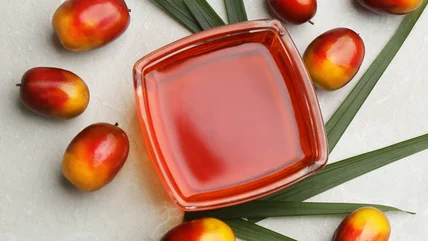The National Palm Produce Association of Nigeria (NPPAN) has revealed that Nigeria spends $600 million annually on palm oil importation.
This was stated by Mr Alphonsus Inyang, the National President of the association, in an interview with the News Agency of Nigeria (NAN) on Tuesday in Abuja.
Inyang criticised these expenses as detrimental to national development, suggesting that the funds could be better utilised within the economy if the palm oil sub-sector received adequate attention from successive governments.
He highlighted Nigeria’s historical self-sufficiency in palm oil production, contrasting it with the current situation where a substantial portion of the country’s palm oil is imported.
“In the 60s, Nigeria was the leading global producer and exporter of palm oil, controlling over 60 per cent of the world’s supply,” Inyang said.
“Now, more than 50 per cent of our consumption is met through imports.”
Currently, Nigeria ranks fifth among palm oil-producing countries, trailing Indonesia, Malaysia, Thailand, and Colombia.
Inyang warned that Nigeria might lose this position to smaller countries investing heavily in the sector.
According to the U.S. Department of Agriculture, Nigeria produces 1.4 million metric tons of palm oil annually, accounting for 1.5 per cent of the world’s total output.
This production level is significantly lower than the leading producers: Indonesia at 50 million metric tons, Malaysia at 19 million metric tons, Thailand at 3.28 million metric tons, and Colombia at 1.9 million metric tons.
Inyang attributed Nigeria’s challenges to the neglect of the sector by past governments.
He pointed out that while Nigeria is now the largest consumer of palm oil in Africa, with an annual consumption of approximately three million metric tons, domestic production remains below 1.4 million metric tons, creating a deficit of over 1.6 million metric tons.
To address this shortfall, Inyang urged the government, specifically the Federal Ministry of Agriculture and Food Security, to support NPPAN members with essential resources.
“Our members can plant up to 250,000 hectares per year through the association’s National Oil Palm Strategy Development Plan. All we need are inputs,” he said.
“The government does not need to provide and develop land for us. We need seedlings, fertilisers, logistics, and implements to close this gap within four years.
“This will also create new millionaires in 28 states of the federation.”

